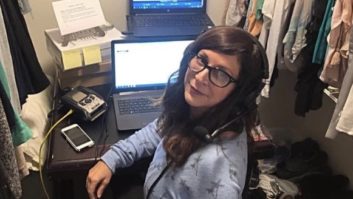Field Report: RCS Master Control
Aug 1, 2002 12:00 PM, By Russell Smith
It’s commonly thought that growing up on video games leads to certain side effects as an adult. For me, Super Mario Brothers and Metal Gear were a gateway to things like phone editors, traffic schedulers, remote control software and for the past four years Radio Computing Services Master Control. It’s easy to master, offers factory support and is flexible and reliable.
Performance at a glance
- Proof, edit and reconcile logs
- Easy-to-read, colorful screens
- Search and index audio cuts
- Multiple event chaining
- Paperless studio operation
RCS has a friendly, trained technical support staff answering phone calls 24 hours a day to assist with any problems a station might encounter. Because the company has a global base of clients, it operates several foreign offices that handle the off-hours calls. This allows callers to reach a technical person at all times � no answering services.
The service doesn’t stop with the software. The hardware is supported by the manufacturer’s on-site service program that covers replacement and repair of things such as hard drives, power supplies and motherboards.
Built for backup
One of the best features of the software is its redundancy in audio and data storage. Each RAID array consists of several large drives that distribute the data, so a drive may fail, but the system will continue to run. The audio files of each station are primarily stored on the air studio machine. Audio is also stored in a backup database on the admin machine. Should one air studio machine fail, downtime is minimized because a few clicks on one of the production machines will make admin the on-air machine. Once this is done, the on-air operation relocates to that studio or we swap the machines in the rack. In this backup mode, audio plays over the network from the admin machine; operators and listeners don’t know the difference.

Loss of an entire system or studio facility could be a huge crisis, especially considering the loss of music and commercials. Fortunately, RCS uses standard CPUs and common hardware regularly available. The audio library is backed up regularly to a common removable media that can be stored in a safe location.
No problem with change
As programming needs change, so changes Master Control. All of the applications needed for basic operation span two monitors. One displays a bank of audio drops with three virtual players, plus the three main decks for programmed elements from the log on the opposite screen. In live-assist mode, jocks can point and click their way through an airshift. Users can juggle items, play a drop or insert a song � all while rarely using the keyboard. Most operations are easily handled via a Preh keyboard or by using the track ball. The Preh pad is a multi-function keypad that allows operators to play drops, change segues, skip items and control the recording of voice tracks.
Voice tracking makes automation easy and reliable. Announcers voice their shows in about one third of the normal time, cutting payroll and improving the station’s sound. Mistakes can be corrected by rerecording the track. Segues can be edited and played back as if they were being aired live. Satellite programming is also easily handled.
It can decode and generate contact closures using its Advantech opto-isolator/relay boards. I use the relays and the scheduling of control events to manage my silence sensors and what action they take. Other features include the ability to interface to CD players to run syndicated shows and start the recording of commercial feeds for later editing. We never miss feeds. The logic functions are limited only by the number of inputs and outputs on the card.
Master Control works with music scheduling software to link songs to a Web page, so that a Web browser will display the artist and song title. The data can be formatted in a variety of ways to suit a station’s website needs in displaying the current on-air information.
Smith is chief engineer for the ABC Radio Group, Atlanta.
field report







